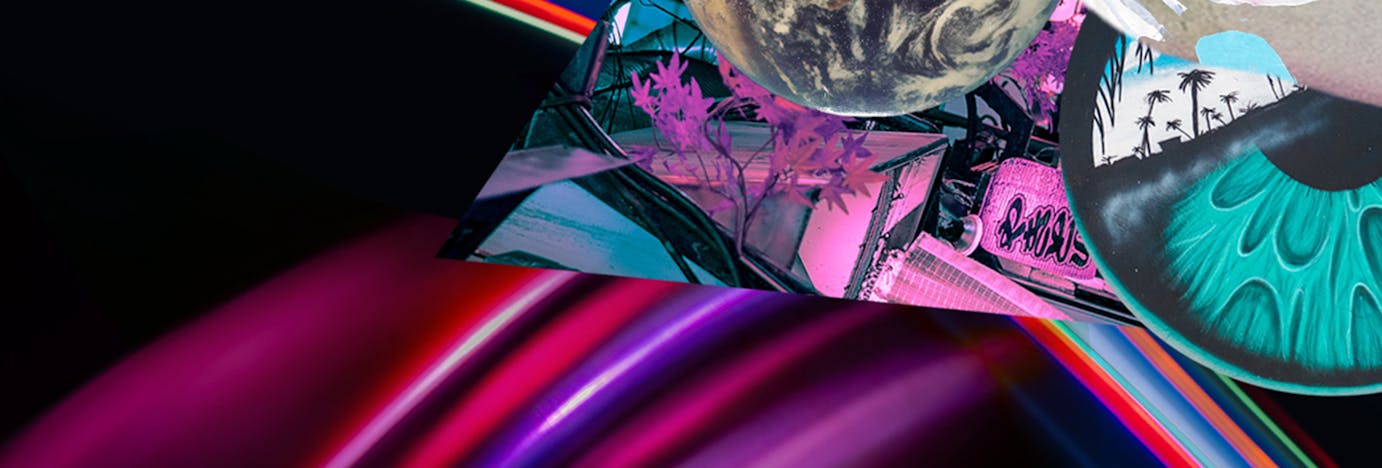Welcome to the 
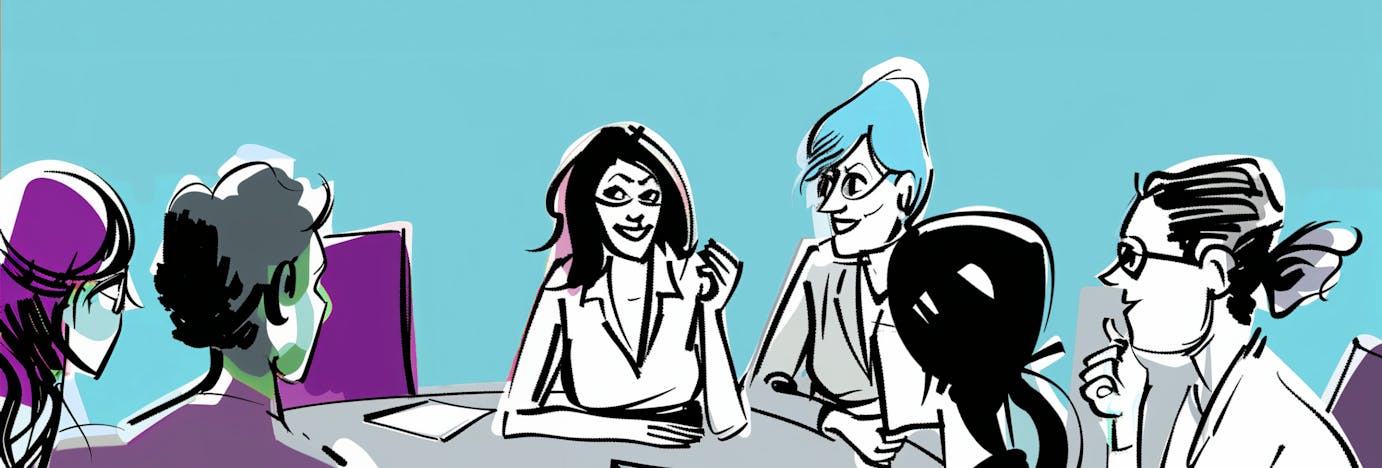
Article
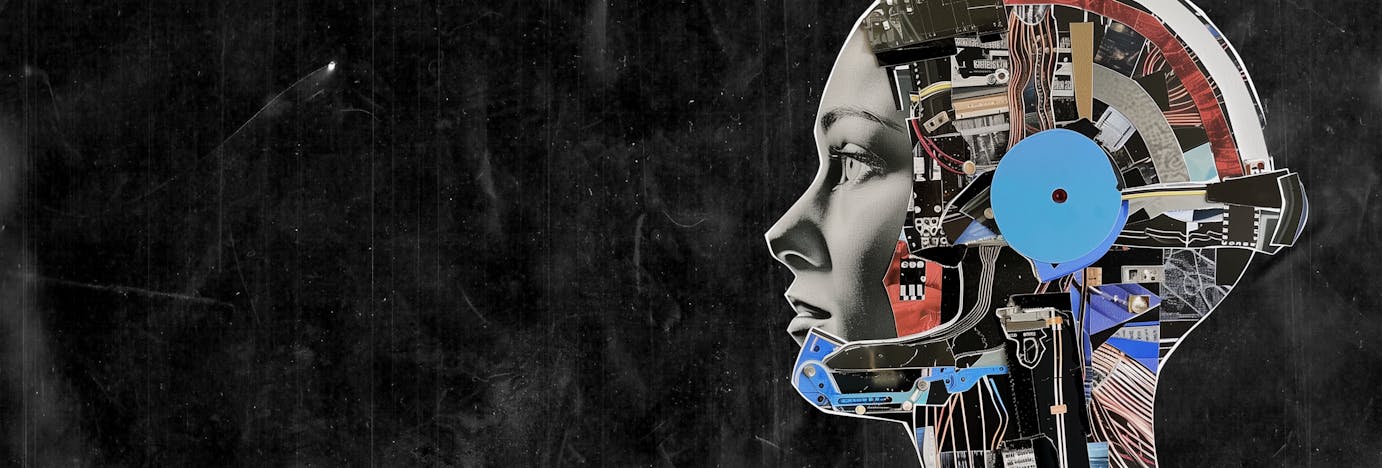
Article
How creative are navigating the ethical and moral boundaries of AI
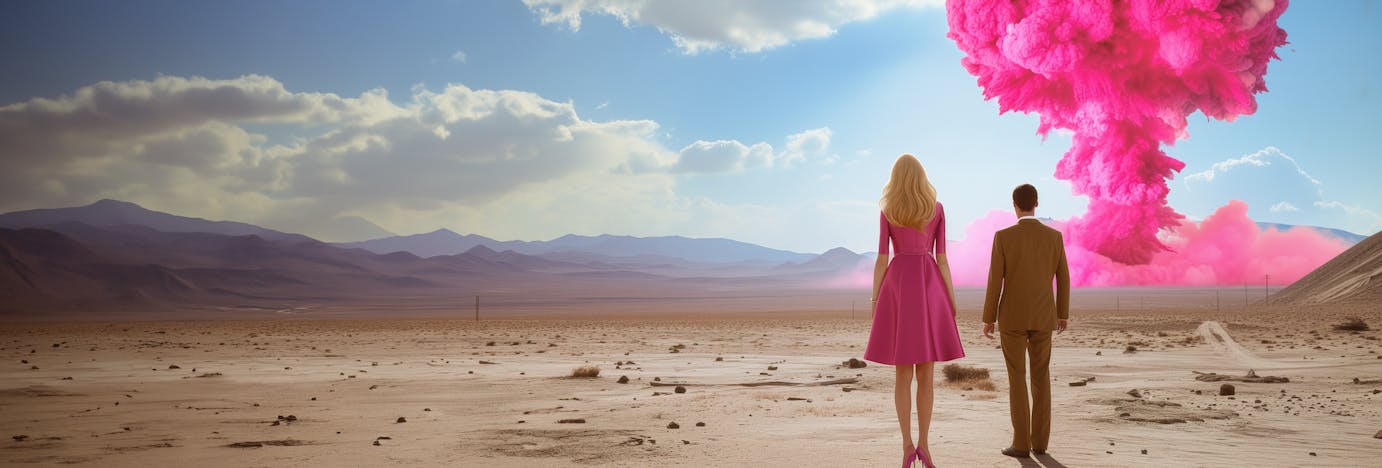
Article
Was AI the biggest talking point in marketing for 2023?
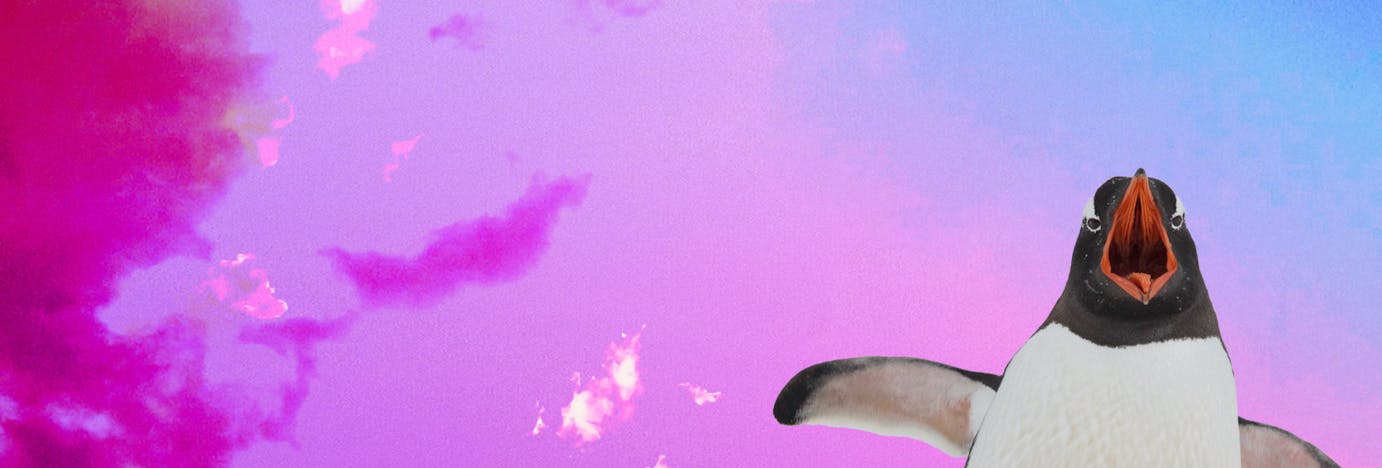
Article
What to Say and How to Say It
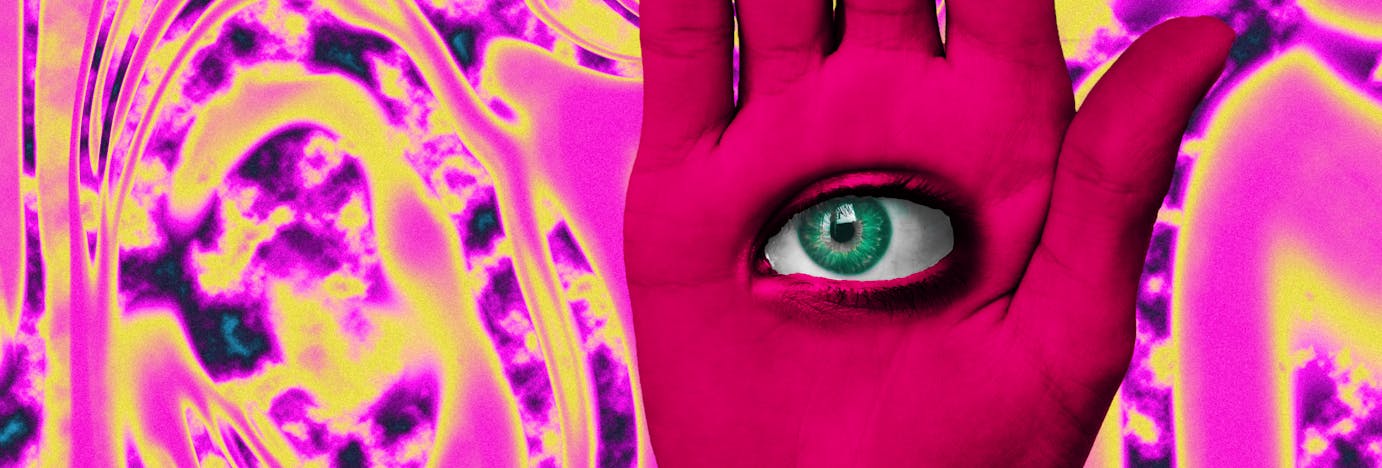
Article
I Wanna Be With You Everywhere
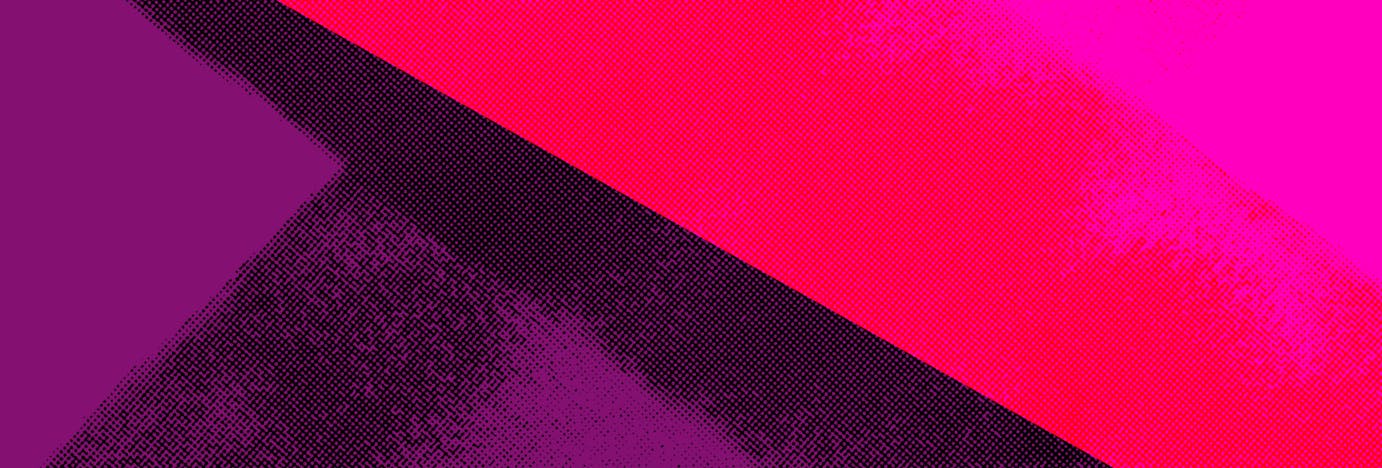
Article
The Double Standards of Sex Appeal: Sex Sells, but not for Women
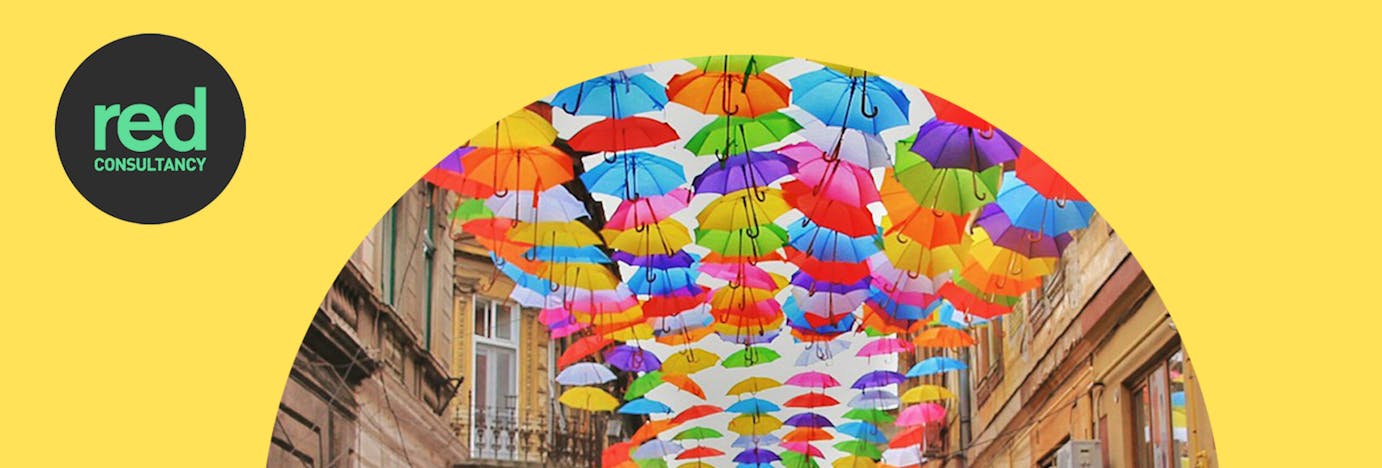
Article
The Cultural Trends you SHOULDN'T Jump on in 2024
For Brands
View all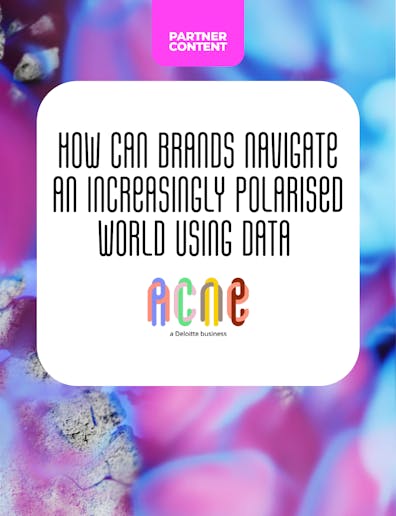 How can brands navigate an increasingly polarised world using dataWebinar by ACNE. This session offers a roadmap for brands to connect authentically to their consumers.
How can brands navigate an increasingly polarised world using dataWebinar by ACNE. This session offers a roadmap for brands to connect authentically to their consumers.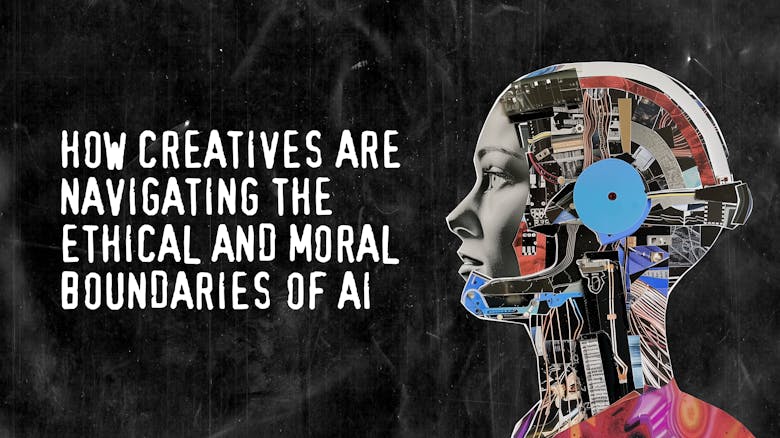 How creatives are navigating the ethical and moral boundaries of AIWe’ve seen Donald Trump being wrestled to the ground by police officers, Pope Francis looking swanky in his puffer jacket, and a recent series of Taylor Swift inspired explicit deepfake images.
How creatives are navigating the ethical and moral boundaries of AIWe’ve seen Donald Trump being wrestled to the ground by police officers, Pope Francis looking swanky in his puffer jacket, and a recent series of Taylor Swift inspired explicit deepfake images.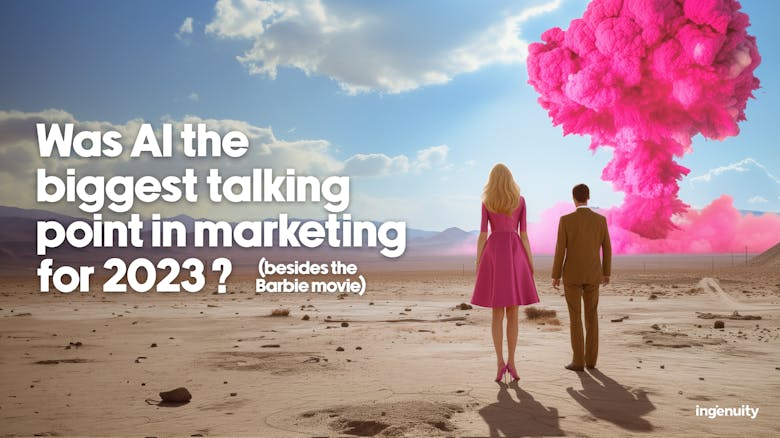 Was AI the biggest talking point in marketing for 2023 (besides the Barbie movie)?With the latest digital innovations now bringing AI to the forefront of marketers' minds - how will these new tools redefine creativity in 2024?
Was AI the biggest talking point in marketing for 2023 (besides the Barbie movie)?With the latest digital innovations now bringing AI to the forefront of marketers' minds - how will these new tools redefine creativity in 2024?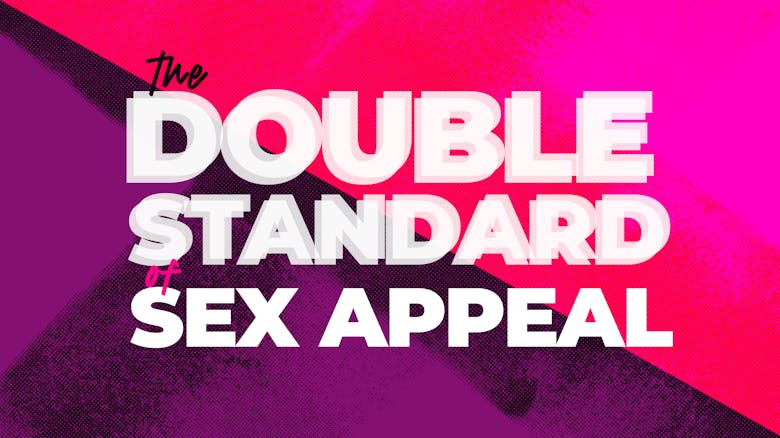 The Double Standard of Sex Appeal: Sex sells, but not for women
The Double Standard of Sex Appeal: Sex sells, but not for women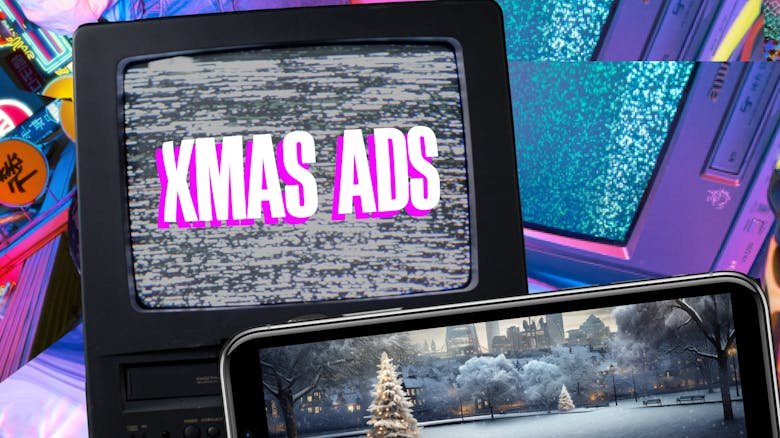 Thanks for Watching my Christmas Ad! Please Like and Subscribe …Christmas ads in 2023, brands compete for online metrics and impressions and success is measured not only by sales but also by views, engagements, and impressions, emphasizing the importance of creativity to make a lasting impact .
Thanks for Watching my Christmas Ad! Please Like and Subscribe …Christmas ads in 2023, brands compete for online metrics and impressions and success is measured not only by sales but also by views, engagements, and impressions, emphasizing the importance of creativity to make a lasting impact .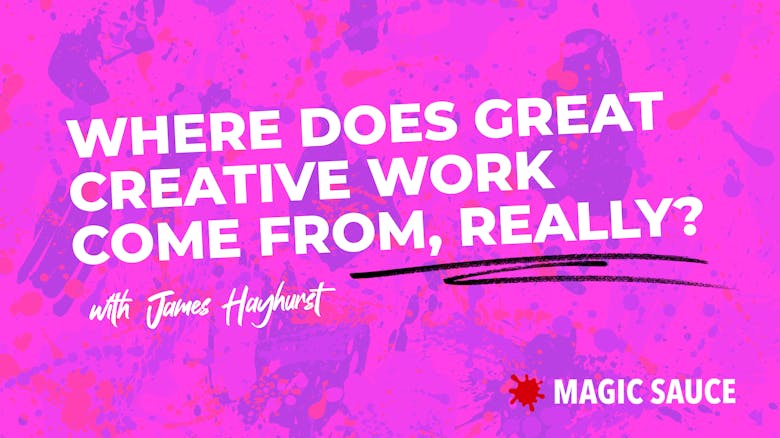 Where does great creative work come from, really?The strength of the agency/client relationship is in fact the most important variable influencing marketing success. The relationship is the ‘magic sauce’ for creativity.
Where does great creative work come from, really?The strength of the agency/client relationship is in fact the most important variable influencing marketing success. The relationship is the ‘magic sauce’ for creativity.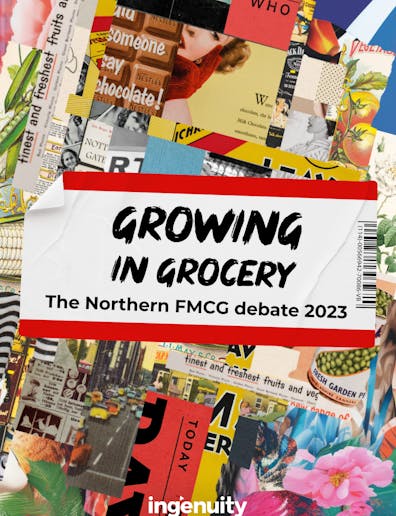 Growing in Grocery: The Northern FMCG Debate 2023Watch a panel of experts depate the forcing driving the transformation of FMCG
Growing in Grocery: The Northern FMCG Debate 2023Watch a panel of experts depate the forcing driving the transformation of FMCG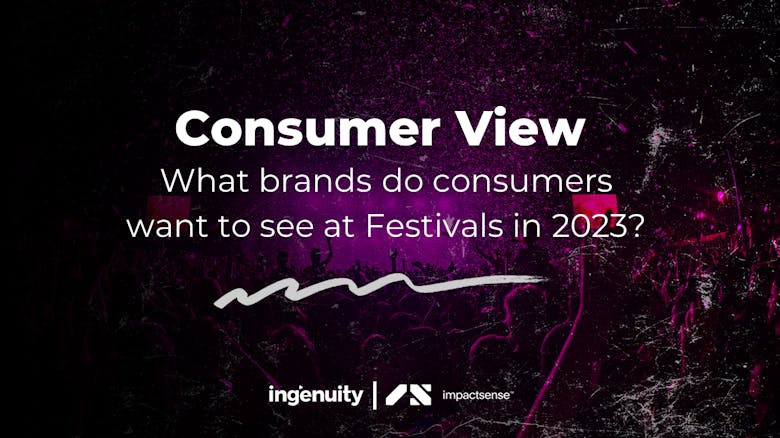 What brands do consumers want to see at Festivals in 2023?With FMCG brand budgets on the decrease across live events, which brands should be investing in festivals? 1000 festivalgoers reveal all.
What brands do consumers want to see at Festivals in 2023?With FMCG brand budgets on the decrease across live events, which brands should be investing in festivals? 1000 festivalgoers reveal all.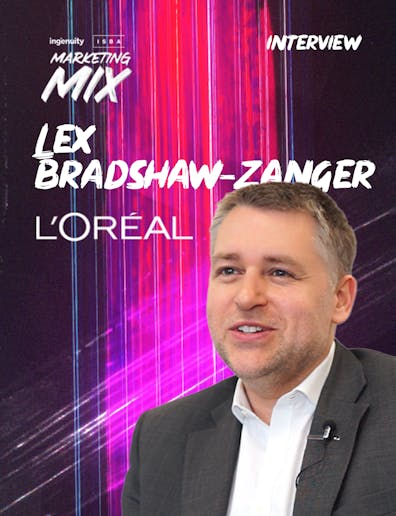 CDMO at L'Oréal talks their marketing mixWe sit down to discusss the Marketing Mix at L'Oréal
CDMO at L'Oréal talks their marketing mixWe sit down to discusss the Marketing Mix at L'Oréal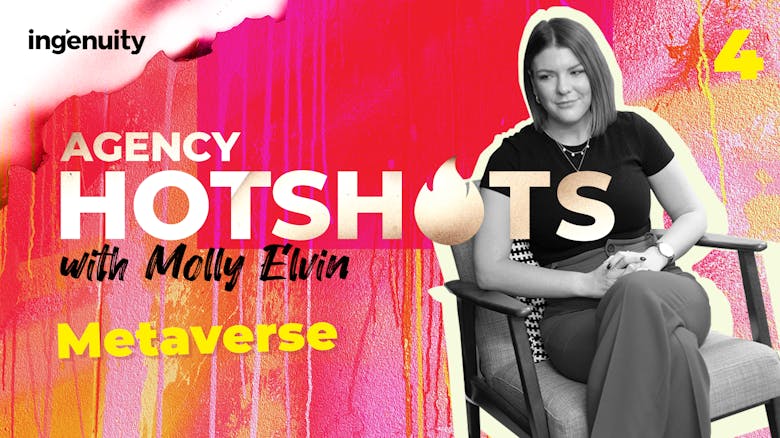 The Top Agencies Building Brands In The Metaverse One Year OnWhich forward-thinking agencies should marketing teams and procurement professionals have their eye on? As part of my Agency Hotshots series, here are my Top 11 Metaverse Moguls for your perusal.
The Top Agencies Building Brands In The Metaverse One Year OnWhich forward-thinking agencies should marketing teams and procurement professionals have their eye on? As part of my Agency Hotshots series, here are my Top 11 Metaverse Moguls for your perusal.
Masterclasses
View all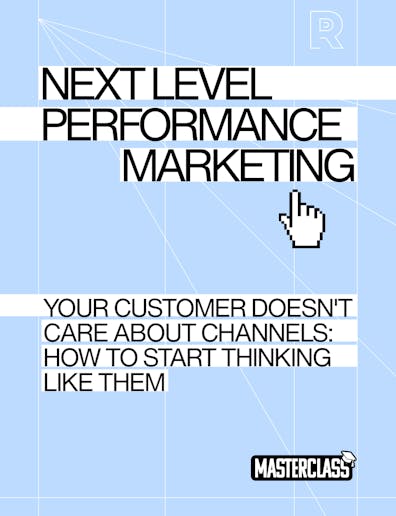 Your Customer doesn't Care about Channels: How to Start Thinking Like ThemYour customer doesn’t care about channels, how to start thinking like them. We live in a world where as marketers we are hung up on specialisms and channels and it causes us to create divides and siloes.
Your Customer doesn't Care about Channels: How to Start Thinking Like ThemYour customer doesn’t care about channels, how to start thinking like them. We live in a world where as marketers we are hung up on specialisms and channels and it causes us to create divides and siloes.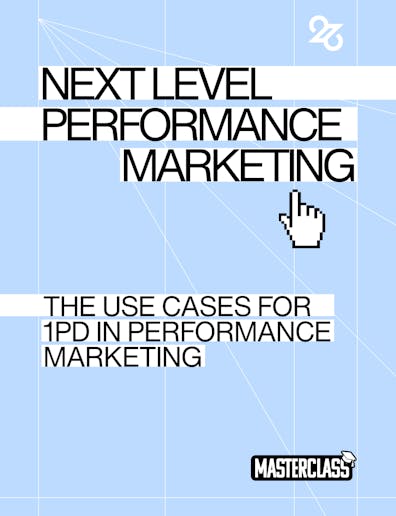 The Use Cases for 1PD in Performance MarketingThe many use cases for First party data (1PD) in performance marketing. The phasing out of third-party cookies (3PC) has dominated the headlines in digital performance marketing for a couple of years and whilst tech platforms have offered up solutions and brands have doubled down on growing their 1PD,
The Use Cases for 1PD in Performance MarketingThe many use cases for First party data (1PD) in performance marketing. The phasing out of third-party cookies (3PC) has dominated the headlines in digital performance marketing for a couple of years and whilst tech platforms have offered up solutions and brands have doubled down on growing their 1PD,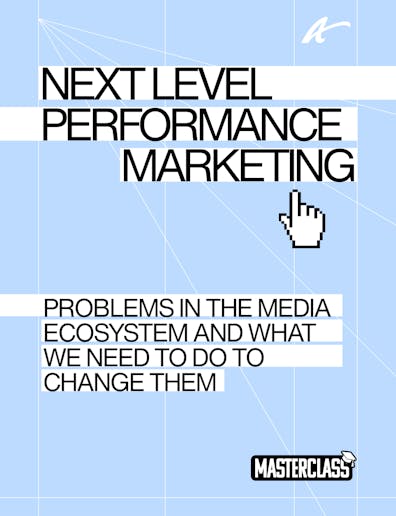 Problems in the Media Ecosystem and What we need to do to Change themThere is a crisis of short-termism in Media. In the past decade there has been a race to the bottom. Media tactics that prioritize price over everything, too much focus on vanity metric, data availability and use changes, and Facebook and Google dominating ad spend and data collection.
Problems in the Media Ecosystem and What we need to do to Change themThere is a crisis of short-termism in Media. In the past decade there has been a race to the bottom. Media tactics that prioritize price over everything, too much focus on vanity metric, data availability and use changes, and Facebook and Google dominating ad spend and data collection.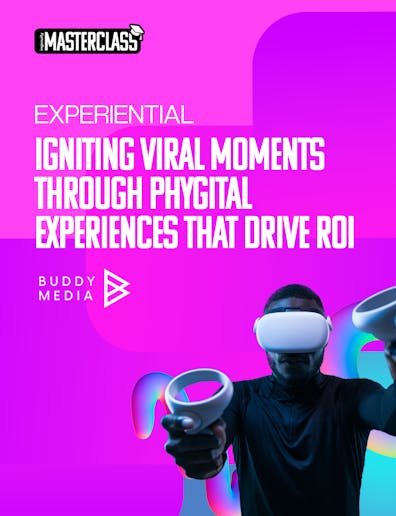 Igniting viral moments through physical experiences that drive ROIDiscover the key principles we use to create viral moments that actually drive sales.
Igniting viral moments through physical experiences that drive ROIDiscover the key principles we use to create viral moments that actually drive sales.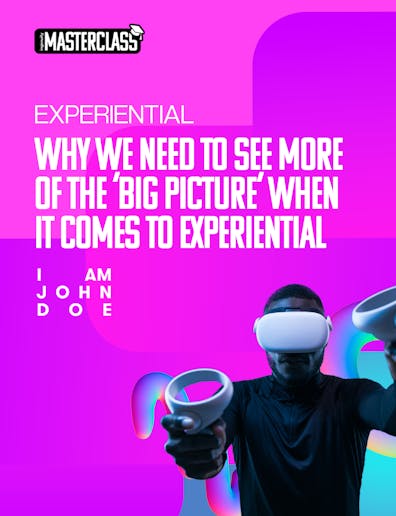 Why we need to see more of 'the big picture' when it comes to experientialThe glitz, glamour and galore. Just think of what was arguably 2023’s biggest viral event moment - when The Sphere in Las Vegas launched.
Why we need to see more of 'the big picture' when it comes to experientialThe glitz, glamour and galore. Just think of what was arguably 2023’s biggest viral event moment - when The Sphere in Las Vegas launched.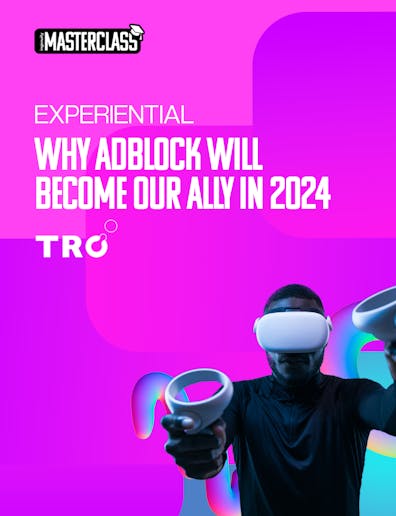 Why adblock will become our ally in 2024In the age of mass fragmentation and the demise of third-party cookies, the resistance against mass advertising will contribute to the growth of IRL experiences.
Why adblock will become our ally in 2024In the age of mass fragmentation and the demise of third-party cookies, the resistance against mass advertising will contribute to the growth of IRL experiences.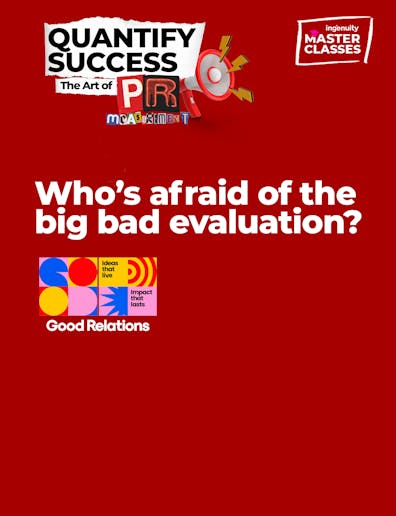 Who's afraid of the big bad evalutionGood Relations, demystifies the thorny issue of measurement giving a clear structure on how to set out, track and report campaigns
Who's afraid of the big bad evalutionGood Relations, demystifies the thorny issue of measurement giving a clear structure on how to set out, track and report campaigns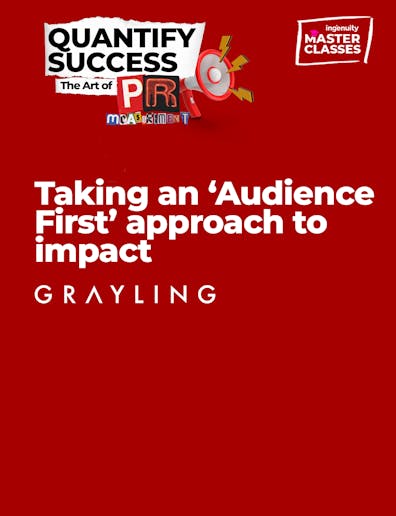 Taking an 'Audience First' approach to impactGrayling discuss how they integrate the digital and media metrics familiar to many with primary audience research to give clients a holistic understanding of PR impact.
Taking an 'Audience First' approach to impactGrayling discuss how they integrate the digital and media metrics familiar to many with primary audience research to give clients a holistic understanding of PR impact.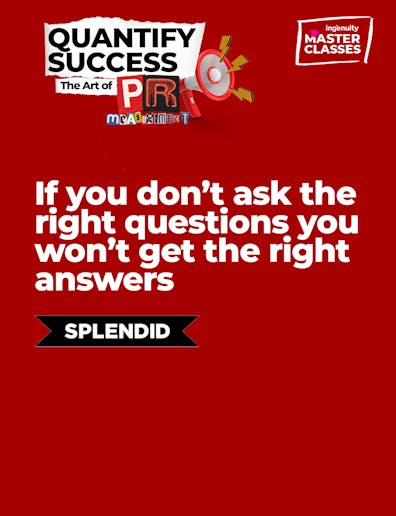 If you don't ask the right questions, you won't get the right answersSplendid discuss will explore why brands need to be measuring in a people-first cultural context, not a self-serving communications context
If you don't ask the right questions, you won't get the right answersSplendid discuss will explore why brands need to be measuring in a people-first cultural context, not a self-serving communications context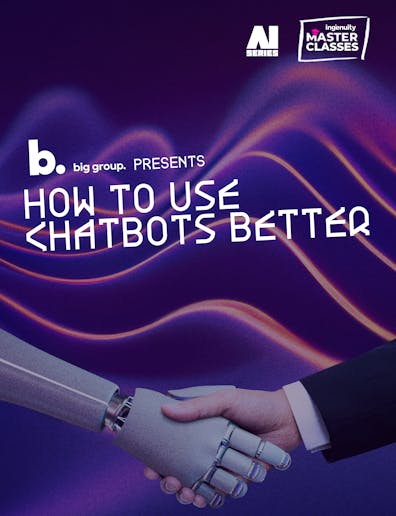 How to Use Chatbots BetterBig Group will explain in simple terms how the LLMs work and therefore how they can best be used to make our jobs in marketing easier.
How to Use Chatbots BetterBig Group will explain in simple terms how the LLMs work and therefore how they can best be used to make our jobs in marketing easier.
For Agencies
View all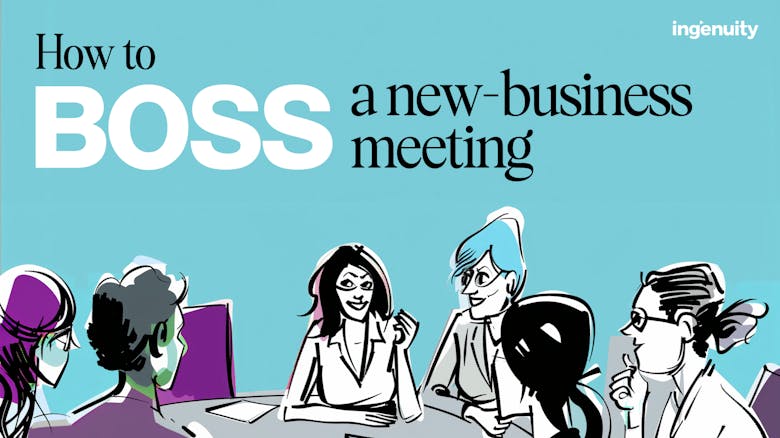 How to BOSS a New-Business MeetingFor marketing, PR, and creative professionals, new business meetings are sometimes an unwelcome, if necessary, addition to already busy schedules.
How to BOSS a New-Business MeetingFor marketing, PR, and creative professionals, new business meetings are sometimes an unwelcome, if necessary, addition to already busy schedules.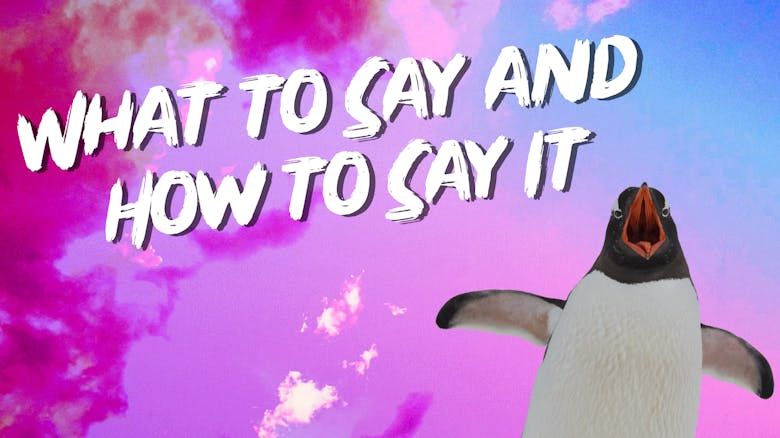 What to Say and How to Say ItThis was also a comment on the ephemeral nature of the trade media: today’s razor-sharp insight is tomorrow’s greasy food wrapper.
What to Say and How to Say ItThis was also a comment on the ephemeral nature of the trade media: today’s razor-sharp insight is tomorrow’s greasy food wrapper.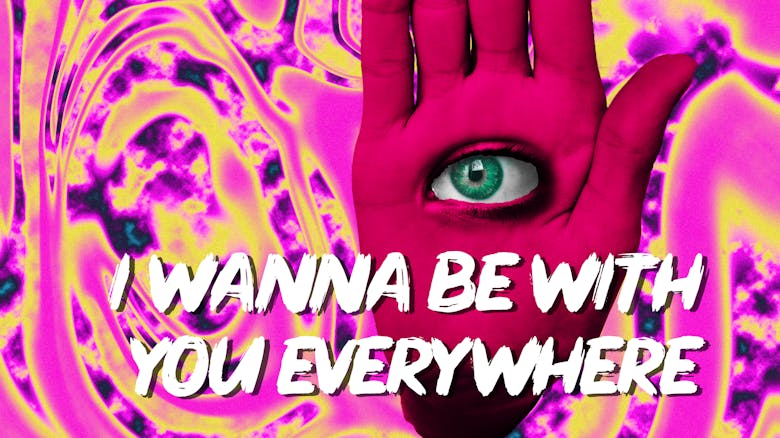 I Wanna Be With You EverywhereAs the great Fleetwood Mac once described, there’s nothing worse than being Second Hand News. In other words, don’t let someone beat you to your own message: take centre stage yourself.
I Wanna Be With You EverywhereAs the great Fleetwood Mac once described, there’s nothing worse than being Second Hand News. In other words, don’t let someone beat you to your own message: take centre stage yourself.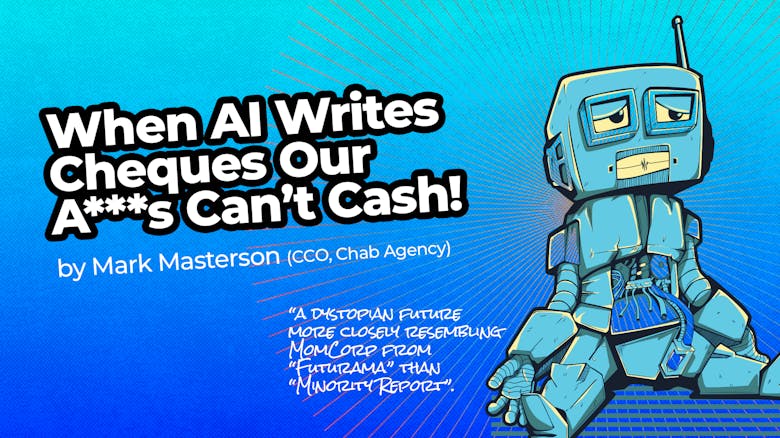 When AI Writes Cheques Our Asses Can’t Cash!
When AI Writes Cheques Our Asses Can’t Cash!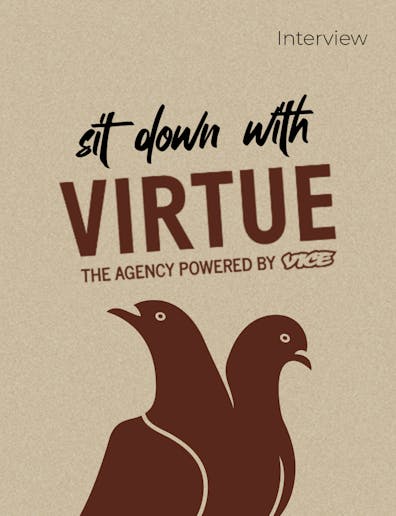 Virtue InterviewWe speak to Virtue and explore the importance of brands being inside culture and their predictions for 2023.
Virtue InterviewWe speak to Virtue and explore the importance of brands being inside culture and their predictions for 2023.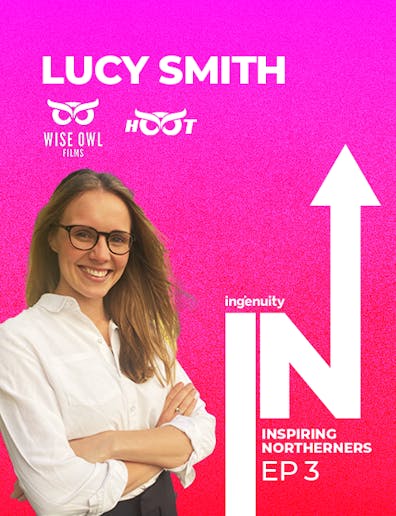 Inspiring Northerners: Episode 3 Lucy Smith Head of Development at Wise Owl Films and HOOTLucy Smith is a passionate northerner laser-focused on growing Yorkshire's world-class screen industries and she's spearheading the fight against the "bucolic plague" that pigeonholes how the north is seen by London-based commissioners.
Inspiring Northerners: Episode 3 Lucy Smith Head of Development at Wise Owl Films and HOOTLucy Smith is a passionate northerner laser-focused on growing Yorkshire's world-class screen industries and she's spearheading the fight against the "bucolic plague" that pigeonholes how the north is seen by London-based commissioners.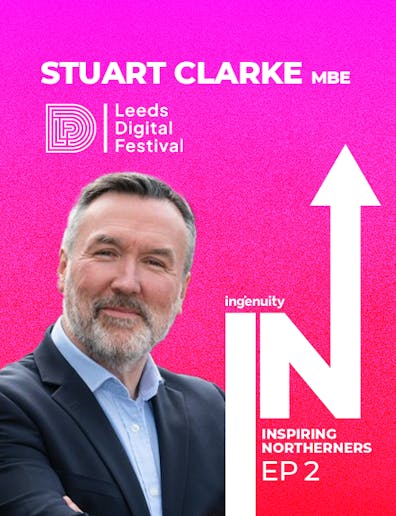 Inspiring Northerners: Episode 2 Stuart Clarke MBE, Co-Founder and Festival Director of the Leeds Digital FestivalIn episode 2 of Inspiring Northerners George Vann chats with Stuart Clarke MBE, Co-founder and Festival Director of the Leeds Digital Festival, the largest open tech event in the UK.
Inspiring Northerners: Episode 2 Stuart Clarke MBE, Co-Founder and Festival Director of the Leeds Digital FestivalIn episode 2 of Inspiring Northerners George Vann chats with Stuart Clarke MBE, Co-founder and Festival Director of the Leeds Digital Festival, the largest open tech event in the UK.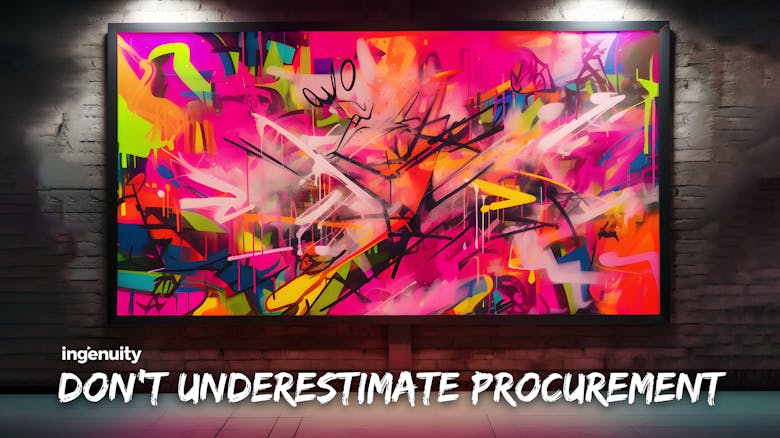 Don't Underestimate the Role of Procurement in the Pitch ProcessThe time for revolution in marketing procurement is now - so the argument goes. We’re already seeing a big shift in the way brands think: less saving, more value. Procurement demands fewer potential partners and healthier rosters with strengthened relationships. This can hopefully rid the procurement profession of bad practice. Cue The Positive Pitch Pledge.
Don't Underestimate the Role of Procurement in the Pitch ProcessThe time for revolution in marketing procurement is now - so the argument goes. We’re already seeing a big shift in the way brands think: less saving, more value. Procurement demands fewer potential partners and healthier rosters with strengthened relationships. This can hopefully rid the procurement profession of bad practice. Cue The Positive Pitch Pledge.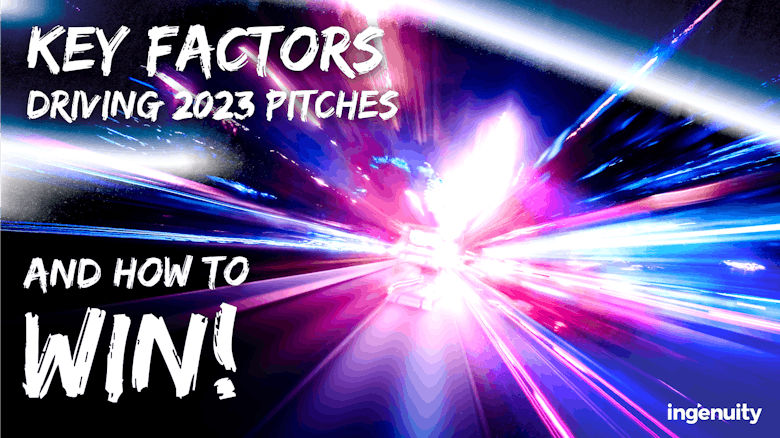 Key Factors Driving 2023 Pitches and How to WINAfter 17 years working with brands of all shapes and sizes, we’ve narrowed down the top drivers of the new business/pitch market, particularly in the ‘creative’ space.
Key Factors Driving 2023 Pitches and How to WINAfter 17 years working with brands of all shapes and sizes, we’ve narrowed down the top drivers of the new business/pitch market, particularly in the ‘creative’ space.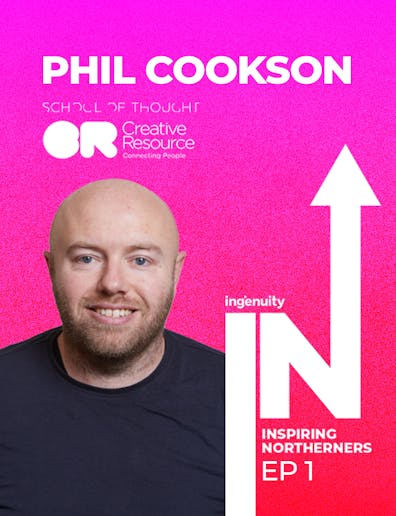 Inspiring Northerners: Episode 1 Phil Cookson, Co-Founder School of ThoughtIn this vodcast series we chat to Inspiring Northerners to discover how they got to where they are now & what drives them.
Inspiring Northerners: Episode 1 Phil Cookson, Co-Founder School of ThoughtIn this vodcast series we chat to Inspiring Northerners to discover how they got to where they are now & what drives them.
Ingenuity Events
View all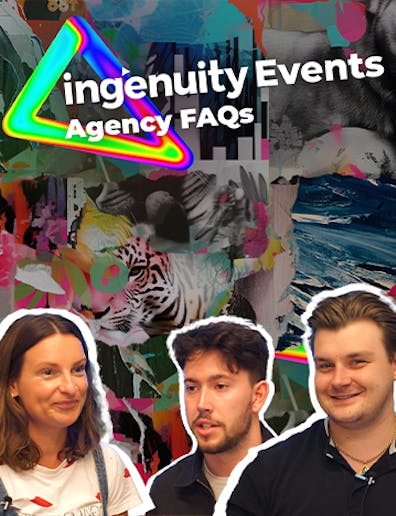 Ingenuity Events: Agency FAQsIn this FAQ video, the Events team tackle the most commonly answered questions by agencies. Stay for the bloopers.
Ingenuity Events: Agency FAQsIn this FAQ video, the Events team tackle the most commonly answered questions by agencies. Stay for the bloopers.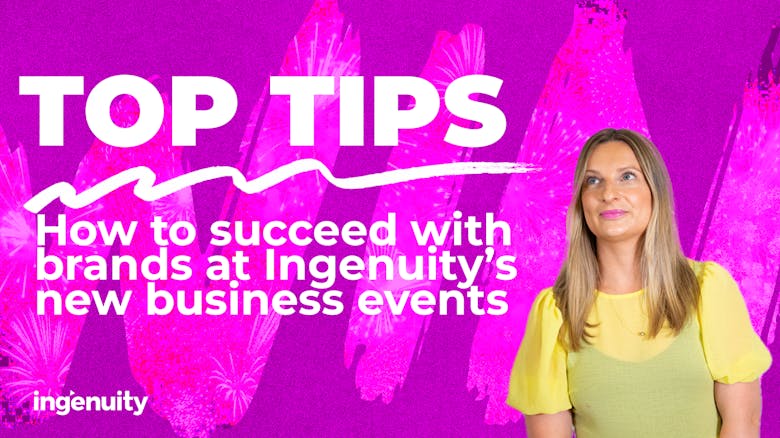 How to succeed with brands at Ingenuity’s new business eventsWith our new business events driving so much success for agencies in 2022, we’re hoping 2023’s calendar of events will be no different. But what can our team tell you about getting the most out of the day?
How to succeed with brands at Ingenuity’s new business eventsWith our new business events driving so much success for agencies in 2022, we’re hoping 2023’s calendar of events will be no different. But what can our team tell you about getting the most out of the day? The great eight - The 8 success stories of Ingenuity eventsOver the 14 years of events running, we’ve been lucky enough not to just match brands and agencies, but also watch how their relationships have grown and the success of the content they’ve generated.
The great eight - The 8 success stories of Ingenuity eventsOver the 14 years of events running, we’ve been lucky enough not to just match brands and agencies, but also watch how their relationships have grown and the success of the content they’ve generated.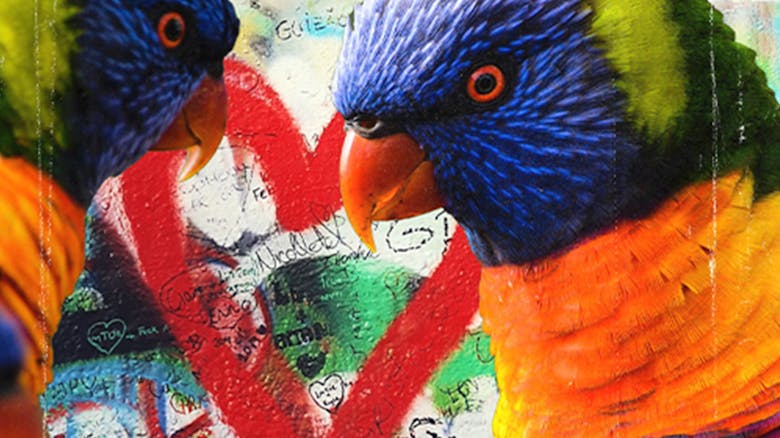 The end-to-end process of Ingenuity’s New Business eventsBeing at the forefront of driving new business for agencies (sat on both sides of the coin in terms of client side and agency side) our CEO and Founder, Chris Kemp, came up with the brilliant idea of leveraging this and bringing agencies and brands together in a different way, not explored before.
The end-to-end process of Ingenuity’s New Business eventsBeing at the forefront of driving new business for agencies (sat on both sides of the coin in terms of client side and agency side) our CEO and Founder, Chris Kemp, came up with the brilliant idea of leveraging this and bringing agencies and brands together in a different way, not explored before.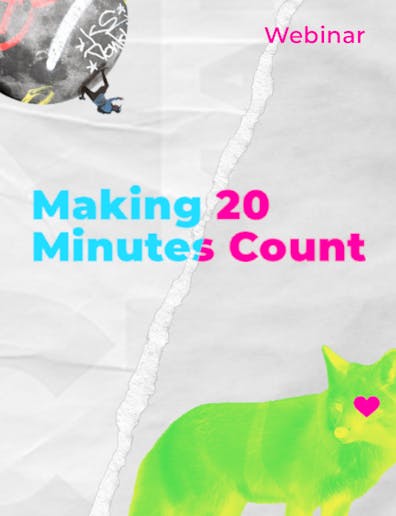 Making 20 Minutes Count
Making 20 Minutes Count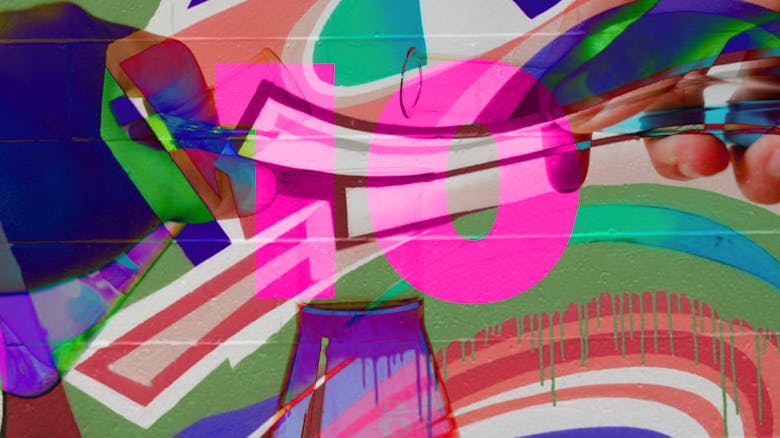 10 agency tips on creating chemistry with brandsIn the room an agency sells itself, its team and its services, in the hope of winning a new client, and a brand meets a pool of potential agencies who are qualified to nail their live briefs. If there’s chemistry, a new business relationship is born.
10 agency tips on creating chemistry with brandsIn the room an agency sells itself, its team and its services, in the hope of winning a new client, and a brand meets a pool of potential agencies who are qualified to nail their live briefs. If there’s chemistry, a new business relationship is born.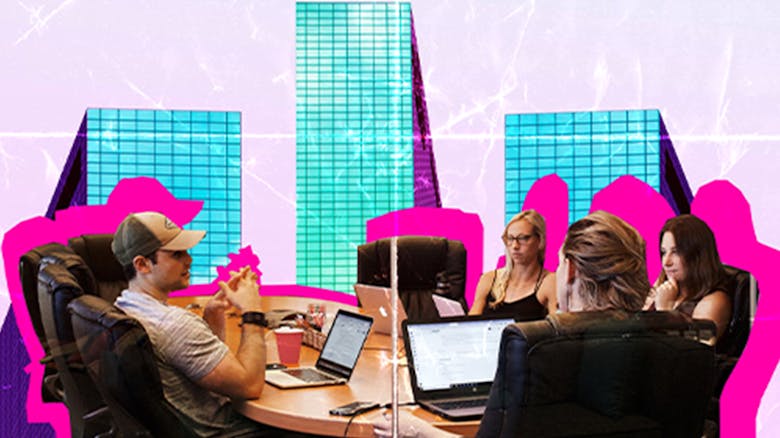 What's new for matchmaking events in 2022It’s been almost 13 years since we launched our connect events business back in 2009; back when Apple’s latest product was the iPhone 4, Wikipedia had only half of their 6.5 million article bank and only a ¼ of 2023’s 4.66 billion digital natives were using the internet.
What's new for matchmaking events in 2022It’s been almost 13 years since we launched our connect events business back in 2009; back when Apple’s latest product was the iPhone 4, Wikipedia had only half of their 6.5 million article bank and only a ¼ of 2023’s 4.66 billion digital natives were using the internet.

